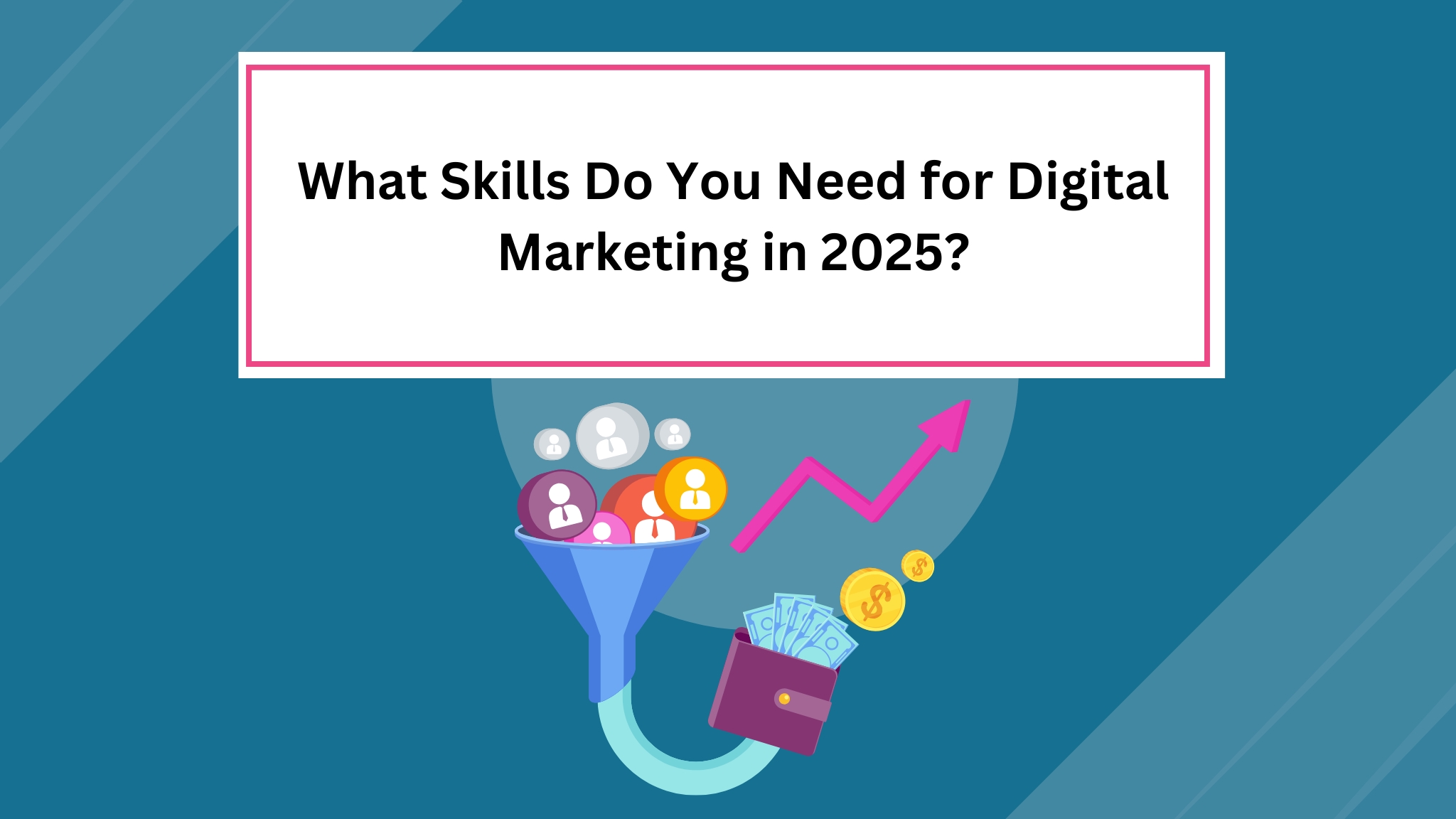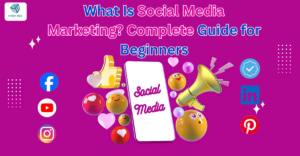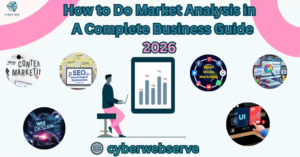To succeed in digital marketing, mastering skills like SEO, content creation, social media management, and data analytics is essential. These skills will help you thrive in this fast-paced industry.
Digital marketing is one of the most lucrative and cost-effective approaches to modern marketing. With the extensive internet connectivity available today, businesses can engage their target audiences more effectively and provide personalized experiences. This approach builds brand awareness, enhances reputation, and increases customer engagement. In this article, we will explore the top digital marketing skills required to succeed in 2025.
Top 24 Digital Marketing Skills

1. Mobile Marketing
Mobile marketing involves promoting products or services via mobile devices through websites, SMS, social networking sites, in-app notifications, and more.
Key Focus Areas:
- Personalized Marketing: Deliver customized ads based on user location and shopping history.
- Trend and Data Analysis: Use consumer data for predictive and behavioral analysis.
- Mobile Analytics: Track engagement metrics such as cost per install to refine campaigns.
2. Customer Relationship Management (CRM)
CRM involves strategies, tools, and technologies to manage interactions with potential and existing customers.
Key Focus Areas:
- Data Analysis: Utilize customer metrics to optimize future campaigns.
- CRM Tools: Gain proficiency in Salesforce, HubSpot, Zoho CRM, and Microsoft Dynamics.
3. Designing
A strong grasp of design principles can enhance ad effectiveness and brand appeal.
Key Focus Areas:
- Design Philosophies: Create visually appealing, attention-grabbing content.
- Adobe Tools: Learn Photoshop and After Effects for high-quality creatives.
4. Social Listening
Social listening involves monitoring brand mentions and conversations on social media.
Key Focus Areas:
- Platform Understanding: Recognize content preferences for different platforms.
- Popular Tools: Use tools like HubSpot and Hootsuite for brand reputation management.
5. Copywriting
Compelling copywriting enhances brand visibility and encourages user engagement.
Key Focus Areas:
- Customer Insights: Understand audience preferences and competitor strategies.
- Strong Writing Skills: Develop persuasive and grammatically sound content.
6. Email Marketing
Email marketing allows businesses to engage directly with their audience.
Key Focus Areas:
- Personalization & Automation: Create targeted campaigns.
- Data Privacy Compliance: Adhere to GDPR regulations.
- A/B Testing: Optimize email campaigns using tools like Mailchimp and Hootsuite.
7. Social Media Marketing
Social media marketing helps brands drive traffic, increase sales, and build brand loyalty.
Key Focus Areas:
- Platform-Specific Strategies: Tailor content for different social media sites.
- Monetization: Utilize YouTube ads, affiliate marketing, and influencer collaborations.
- Analytics: Use Buffer and BuzzSumo to track performance.
8. Pay-Per-Click (PPC)
PPC advertising ensures paid visibility across search engines and social media.
Key Focus Areas:
- Google Ads: Master campaign creation and optimization.
- Metrics Analysis: Monitor cost per click and conversion rates.
9. Search Engine Optimization (SEO)
SEO drives organic traffic and improves search rankings.
Key Focus Areas:
- Technical SEO: Implement sitemaps, redirects, and site speed optimizations.
- Link Building: Balance internal and external link strategies.
- Google Analytics & Webmaster Tools: Track search performance.
10. Data Analysis
Data analysis is crucial for refining digital marketing strategies.
Key Focus Areas:
- Google Analytics: Track visitor behavior and demographics.
- Data Visualization: Present insights through charts and graphs.
11. Communication
Clear and persuasive communication is essential for engaging digital audiences.
12. Content Creation
Quality content captivates audiences and drives engagement.
13. Creativity
Innovative marketing campaigns set brands apart in competitive spaces.
14. Marketing Communications
Personalized marketing messages foster customer relationships.
15. New Product Development
Understanding product development aids in effective marketing strategies.
16. Competitor Analysis
Analyzing competitors helps refine your marketing approach.
17. Automation
Marketing automation streamlines workflows and enhances efficiency.
18. Problem-Solving
Quick troubleshooting is necessary to navigate digital marketing challenges.
19. Content Marketing
A strategic content marketing approach builds brand authority.
20. Influencer & Affiliate Marketing
Collaborating with influencers expands brand reach and credibility.
21. E-commerce Marketing
E-commerce strategies optimize online storefronts and sales.
22. Adaptation
Staying updated with evolving trends and platforms is crucial.
23. Curiosity
A curious mindset helps discover new marketing opportunities.
24. Multitasking
Managing multiple campaigns efficiently is key to digital marketing success.
Conclusion
To stay ahead in digital marketing, you must develop a versatile skill set. If you’re ready to enhance your expertise, consider enrolling in a postgraduate digital marketing course in India. This program will equip you with hands-on experience using tools like Crazy Egg, SEMrush, Buffer, and MailChimp. Additionally, it prepares you for industry certifications such as OCMA, Google Ads, Facebook, Hootsuite, and HubSpot.
Start your journey towards becoming a top digital marketer today!




